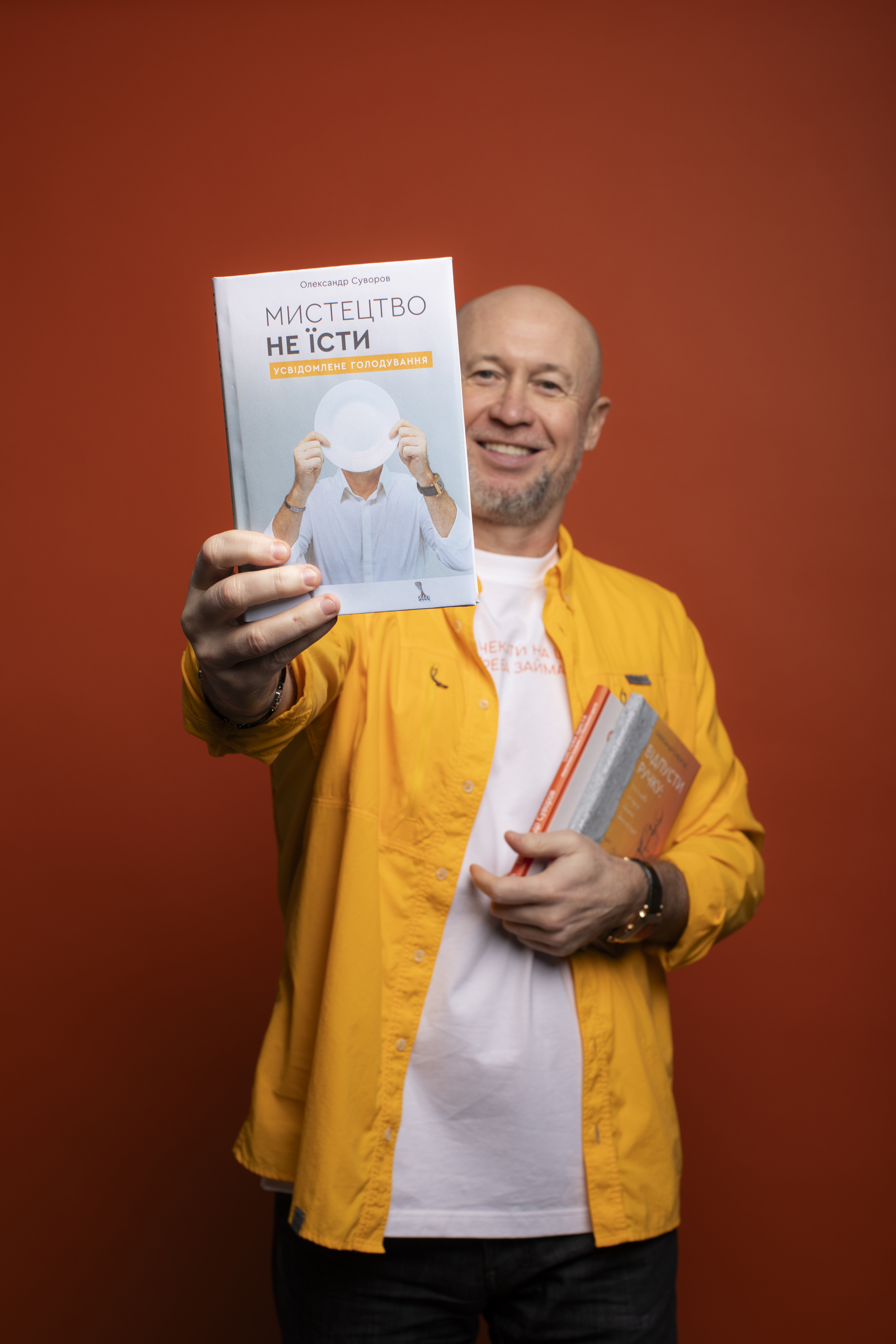Why a Businessman Should Write a Book: Experience That Can't Be Measured by Profit

How Much Do I Earn from My Books? From a classical accounting perspective, it's more of a minus than a plus. I started writing five years ago, and during this time, I've published four books in Ukrainian and English, in both paper and audio formats, and have written part of the fifth. And although they all find their appreciative readers, none have yet returned even half of the invested funds. So, what's the point? There are several compelling reasons, supported by positive experience, that motivate me to continue despite the lack of financial return.
The Desire to Share
I began writing my first book at the age of 48. My business was thriving, I had stepped away from operational management, and I felt the need to redirect the energy previously invested in business processes into a new direction. At that time, my diary and mind were overflowing with thoughts and ideas that lacked only one thing—a form. These were developments on the topic of the Happiness System: not yet fully refined, not always clearly formulated, but ready to be connected into a coherent concept.
I had no intention of turning this into a commercial project. In fact, any endeavor I start solely for profit is doomed to fail—proven by practice. A project must inspire, carry something beyond the logic of profit. It must have scale, meaning, and perspective. Only then does it energetically sustain me.
I wanted to share my ideas with the world. However, at that time, I wasn't using social media, nor was I writing columns. In other words, I didn't have the habit of regularly articulating my thoughts in short forms. A book was, at that moment, the only way for me to realize this inner impulse. But the process of working on the first book captivated me so much that I continued writing new ones even when my Instagram following reached 50,000.
The Opportunity to Fully Unfold an Idea
A book allows you to organize knowledge and clearly formulate the key idea with which you then enter the informational space. No other form offers such an opportunity when it comes to a complex and multifaceted topic. For example, my two main themes—the Happiness System and Fasting—each expanded into two separate books of about two hundred pages.
I'm not a writer working under contract with a publishing house, aiming to write more text to receive a larger fee. My books contain no filler. I write just as I speak—concise and clear. Therefore, it's hard to imagine how many posts or reels would be needed to convey all the depth and scope of meanings presented in my books. Each of them is not a brief thought but a concept that requires space to unfold.
The Book as a Springboard for Personal Brand Development
Often, books are born as a result of a person's activity on social media. First, an expert develops a certain topic in posts, videos, media columns, and then organizes their work into a book. My path, as I've already mentioned, was the opposite. And I significantly benefited from that. With a finished book, I entered the informational space and social media quite powerfully, having a significant credit of trust from the start.
Let me explain why this worked. The topic with which I began to form my personal brand was quite atypical for someone with my background. I had worked in business for thirty years, most of that time in the production of complex industrial equipment. If I had started talking about business processes, management models, or production cycles, everything would have seemed quite natural. But when a person, previously perceived as a "stern production guy," suddenly starts talking about happiness, flow, and inner states, the audience initially becomes wary. Without the foundation in the form of a book that records and structures these views, the path to trust would have been much longer.
That's why the book became a bridge between two worlds—my familiar role and the new topic of subtle matters that I began to share. First, I framed it as a coherent, substantiated idea, and only then did I gradually bring it into social media, columns, and public speeches.
Status and Rituals
No matter how you look at it, the status of "entrepreneur–author of a book" and "entrepreneur–blogger" differ significantly in meaning and weight. A book author has more doors open to them—they're more often invited to closed events, club meetings, forums. As a speaker, as a special guest. And almost always, such events are accompanied by a wonderful ritual—book signings. I've grown accustomed to it and genuinely love it.
No listener will ever approach you with a request to sign a blog or YouTube channel. But a book is a completely different matter. There's something old-school, genuine about it: writing a few sincere words, leaving an autograph, handing over a copy from hand to hand. It's a tangible embodiment of the moment—a transfer of knowledge, emotion, meaning. Like a real paper postcard in a world of quick messages and soulless stickers.
Writing a Book as a Spiritual Practice and Self-Discovery
The process of writing a book is, above all, deep inner work. Reflection that helps to discover new facets of one's personality. Formulating thoughts on paper, I seemed to delve deeper into my own beliefs, rethinking them, comparing them with experience, and in this movement—changing. Each new book became a stage of personal transformation, a step upward.
Writing a book is like looking into a mirror, carefully observing not only your thoughts but also how your way of thinking changes. A meeting with oneself—in the best sense of the word. The process is somewhat similar to keeping a diary, but in reality—it's a completely different depth. In a diary, you can allow yourself haste, carelessness, simplification. After all, you're writing for yourself, and everything is clear to you. In contrast, the text of a book must be understandable not only to the author but also to the reader. This requires a different quality of working with thought—clear formulations, clarifications, structured and logical presentation.
When an idea is born but remains within personal experience, over time, it's easy to lose confidence in its significance and effectiveness. On the other hand, real evidence that the concept has proven effective in another person's life, especially several hundred people, restores faith and enthusiasm. That's exactly what happened with the "Happiness System." The very fact of its viability beyond the author's experience motivated me to delve into the practice again, to test, to feel the result, and each time to find confirmation that the system works. Moreover, it's a very effective way to overcome the notorious "impostor syndrome." Initially, when you write a book, you realize how much you've done and understood, that the material has accumulated more than enough for one page. Secondly, feedback from readers who "got it" significantly amplifies this effect.
The Creative Nature of the Ukrainian Entrepreneur
I'm convinced that most entrepreneurs, regardless of the business they engage in, are very creative people. It's challenging to build a vibrant, strong business in Ukraine without creativity, flexible thinking, and inner depth. At a certain stage, this energy becomes constrained within the business. And then it's extremely important to find new forms for its expression so that the process of degradation doesn't begin. A book is a very worthy option. Especially if from the outset, you understand that you're writing it not for money but for something that is worth much more than author royalties.
